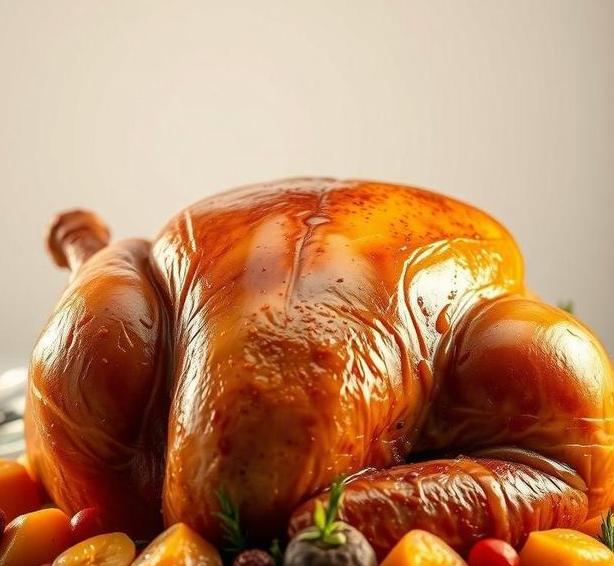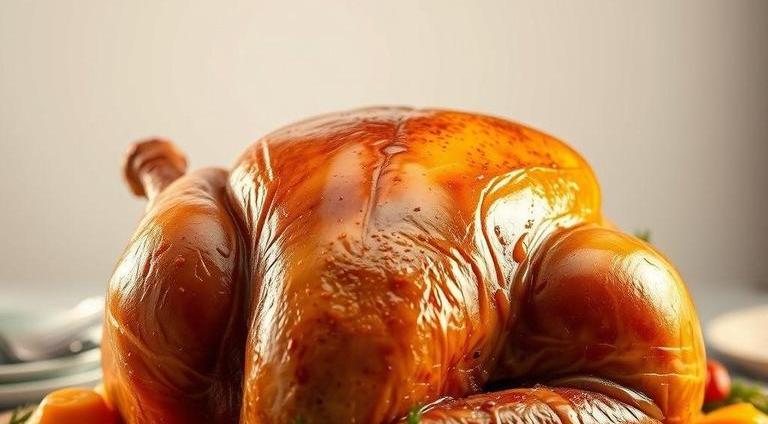When you purchase a Butterball turkey, you’re often looking forward to a delicious meal that will be the centerpiece of your holiday celebrations, family gatherings, or a cozy Sunday dinner. But have you ever wondered how long you can safely store it, or what to look for to ensure it’s still good to eat? Whether it’s frozen or fresh, knowing the shelf life and how to spot spoilage can make all the difference between a satisfying meal and a risky one.
Butterball, one of the most popular brands of turkey in the U.S., is known for its quality and taste. However, like any poultry product, its freshness doesn’t last forever. So, understanding how long your Butterball turkey can last, what kind of signs to watch for, and how to store it properly is essential to avoid foodborne illness and ensure your meal is as delicious as it should be.
In this guide, we’ll cover all the essential information you need about the shelf life of Butterball turkey, how to tell if it’s gone bad, and the best storage practices to keep it fresh.
Can Butterball Turkey Go Bad?
Yes, like any other poultry product, Butterball turkey can go bad. In fact, it’s particularly important to pay attention to the freshness of turkey because poultry is highly perishable. Whether you have a fresh or frozen Butterball turkey, both can eventually spoil if not stored properly or if they’ve been kept past their optimal consumption time.
- Fresh Butterball Turkey: These turkeys are never frozen and are usually labeled with a “use by” or “sell by” date. After this date passes, the turkey will start to lose its freshness, and harmful bacteria like Salmonella or Campylobacter can grow, especially if not cooked or stored correctly.
- Frozen Butterball Turkey: These turkeys can last longer in the freezer, but they do have a shelf life. While freezing slows the growth of bacteria, it doesn’t stop it entirely. The main concern with frozen turkey is freezer burn or a change in taste and texture over time.
In short, while Butterball turkeys do go bad, proper storage can extend their freshness, and knowing the signs of spoilage is crucial.
Shelf Life For Butterball Turkey

Understanding the shelf life of Butterball turkey helps you avoid eating poultry that’s no longer safe. Here’s a breakdown of how long both fresh and frozen Butterball turkeys can last:
Common Signs Of Spoilage
Even with the best storage practices, there are times when the turkey might go bad, whether it’s fresh or frozen. Here are some common signs to look out for that indicate your Butterball turkey has spoiled:
- Off Smell: A sour, rancid, or ammonia-like smell is one of the first indicators that your turkey has spoiled. Fresh turkey will have a neutral or faintly meaty smell, but if it starts to stink, it’s best to discard it.
- Slimy Texture: If the surface of the turkey feels slimy or sticky, it’s a major sign that bacteria have started to grow on the meat. Fresh turkey should feel firm and moist but not slimy.
- Color Changes: Fresh turkey meat should have a pinkish hue. If the skin or meat turns grayish, yellowish, or has a dull color, it’s no longer fresh and could be a sign of spoilage.
- Freezer Burn (on frozen turkey): If your frozen turkey has visible patches of gray or white areas, this is freezer burn, which happens when air gets into the packaging. While the turkey might still be safe to eat, the texture and taste will be compromised.
- Excessive Liquid: If you notice that your turkey is releasing a lot of liquid or has excess moisture in the packaging, especially if it’s been stored too long, it could be a sign of bacterial growth.
If you notice any of these signs, it’s safer to discard the turkey to avoid foodborne illnesses.
How To Store Butterball Turkey?

Proper storage is key to extending the shelf life of your Butterball turkey and keeping it safe to eat. Here’s how you should handle and store it:
-
For Fresh Butterball Turkey
- Refrigeration: Always store fresh Butterball turkey in the coldest part of the fridge, ideally in its original packaging to prevent contamination. Keep it at or below 40°F (4°C).
- Use by Date: Try to cook the turkey by the “use by” date to ensure maximum freshness. If you’re not able to cook it right away, it’s better to freeze it than leave it in the fridge for too long.
-
For Frozen Butterball Turkey
- Freezing: If you’re not ready to cook your frozen Butterball turkey, keep it in its original packaging. If you’ve opened the packaging, re-wrap it tightly in plastic wrap or aluminum foil, then place it in a freezer-safe bag to avoid freezer burn.
- Thawing: Always thaw frozen turkey in the refrigerator, not on the countertop. Thawing in the fridge will take about 24 hours for every 4 to 5 pounds of turkey.
-
Cooked Butterball Turkey
- Refrigerate: Leftover cooked turkey should be stored in airtight containers and eaten within 3 to 4 days.
- Freezing: If you want to keep leftovers longer, freeze cooked turkey in tightly sealed bags or containers. It will maintain the best flavor and texture if consumed within 2 to 6 months.
Expert Tips
- Buy in Advance: If you plan to cook your turkey on a specific day, buy it at least 2 days before so you have enough time to inspect it and store it correctly. Always check the expiration date before purchasing.
- Don’t Refreeze: If you’ve thawed your turkey in the fridge, avoid refreezing it unless you’ve cooked it first. Refreezing thawed meat can alter its texture and increase the risk of bacterial growth.
- Use a Meat Thermometer: When cooking your Butterball turkey, use a meat thermometer to ensure it reaches an internal temperature of at least 165°F (74°C) to kill any harmful bacteria.
- Label Freezer Items: If you freeze your turkey, label the bag with the date so you know how long it’s been stored. This helps you maintain the best quality and avoid keeping it for too long.
FAQs
Can Butterball Turkey Go Bad If Left Out At Room Temperature?
Yes, like all poultry, Butterball turkey can go bad if left at room temperature for more than 2 hours. The risk of bacteria growth increases significantly after this period.
How Long Can Butterball Turkey Stay In The Refrigerator Before Going Bad?
Uncooked Butterball turkey can be stored in the refrigerator for up to 1-2 days before cooking. Once cooked, it can last for 3-4 days in the fridge.
Can Butterball Turkey Be Frozen If It’s Nearing Its Expiration Date?
Yes, you can freeze Butterball turkey before its expiration date. Freezing it will extend its shelf life for up to 12 months, although it’s best used within 6 months for optimal taste and quality.
What Signs Indicate That Butterball Turkey Has Gone Bad?
Signs that Butterball turkey has gone bad include an off or sour smell, slimy texture, discoloration, or any unusual changes in appearance or consistency.
Can A Butterball Turkey Be Unsafe To Eat If It Has Been Frozen For Too Long?
While freezing can preserve Butterball turkey, it is not indefinite. If frozen for over a year, the quality may deteriorate, though it will generally remain safe to eat as long as it’s stored at a constant freezing temperature.
Can I Eat A Butterball Turkey That Has An Expired Sell-by Date?
It’s not recommended to eat a Butterball turkey after its sell-by date. It might still be safe for a short time if stored correctly, but the quality and safety diminish past this point.
How Do I Properly Thaw A Butterball Turkey To Avoid It Going Bad?
The safest way to thaw a Butterball turkey is in the refrigerator. Allow 24 hours for every 4-5 pounds of turkey. You can also thaw it in cold water, but it must be cooked immediately afterward.
Can Butterball Turkey Be Left In The Fridge For Too Long Before Cooking?
Yes, if the turkey stays in the fridge for more than 1-2 days before cooking, it might become unsafe to eat. Always check the sell-by date and ensure it’s properly stored in the fridge.
How Long Is A Cooked Butterball Turkey Safe To Eat?
A cooked Butterball turkey can be stored safely in the refrigerator for 3-4 days. Beyond this period, it could develop harmful bacteria that could cause foodborne illness.
Is It Okay To Cook A Butterball Turkey That Has Been Thawed In The Microwave?
Yes, you can cook a Butterball turkey that has been thawed in the microwave, but it must be cooked immediately after thawing to prevent bacterial growth.